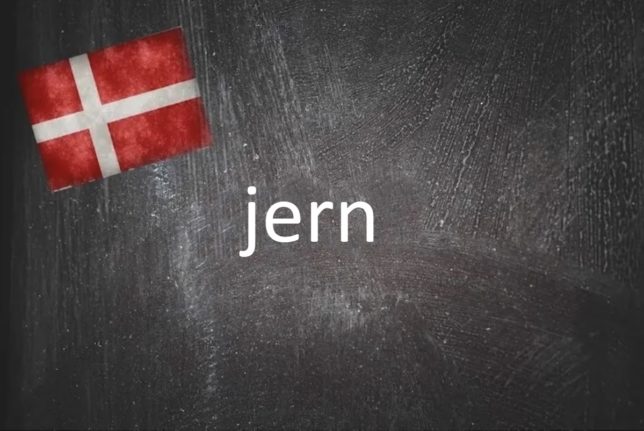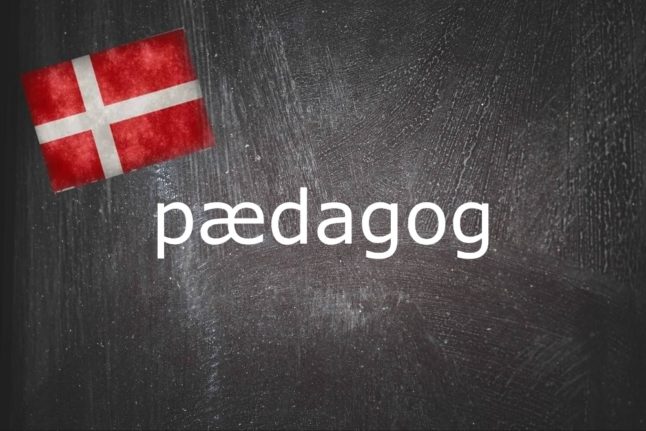It originates from the Old Danish word jarn, which in turn comes from Old Norse járn, which has its roots in a Proto-Germanic word, the same word English iron and German Eisen come from.
It can be used to refer to the metal and chemical element iron, as well as golf irons, but is also commonly used in compound words referring to some sort of tool or appliance made of metal, just like in English.
Some examples of these are an iron used to iron clothes, which is a strygejern, as well as a waffle iron (vaffeljern) or a curling iron (krøllejern), and you’ll also see it in the Danish word for cast iron, støbejern.
An energetic person who is particularly good at something can be described as et jern, and historically a prisoner could be sentenced to sidde i jern (literally: sit in irons).
You might also have noticed it in the Danish word for railway, jernbane, which literally translates to “iron track” – in this case a translation of the German word for railway, Eisenbahn. If you’re particularly interested in Danish railways, you can even visit the Danish railway museum, Danmarks Jernbanemuseum, located in a former train depot in Odense.
There are also a number of idioms which use the word jern, some of which also exist in English.
Someone who is trying to do too many things might be described as having mange jern i ilden (many irons in the fire), while you might be told to smede mens jernet er varmt (strike while the iron is hot) if you need to make quick use of an opportunity.
Example sentences:
Jeg havde tænkt mig at lave vafler i morges, men kunne ikke finde vores jern
I was going to make waffles this morning but couldn’t find our waffle iron.
Banedanmark, en styrelse under Transportministeriet, har ansvar for de danske jernbaner.
Banedanmark, a governmental body under the Transport Ministry, is responsible for the Danish railways.
Don’t miss any of our Danish words and expressions of the day by downloading The Local’s new app (available on Apple and Android) and then selecting the Danish Word of the Day in your Notification options via the User button.



 Please whitelist us to continue reading.
Please whitelist us to continue reading.
Member comments